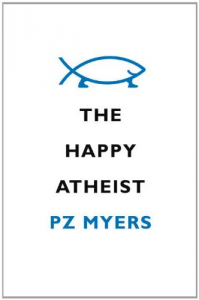We’ve just had a difficult comment thread revive itself both on the original post of mine and in the Thunderdome, and a commenter central to both threads said something that I thought deserved pointing up.
Note: I don’t do so to make that commenter feel bad: for the purpose of this thread, I’d like to keep personality off the table as much as possible. My intent here is more to note and discuss a common dynamic rather than spawn a new subthread on that specific topic. That central commenter said:
I think my reputation at Pharyngula was completely shot early on in [that] thread. That is one of the reasons I kept going—I was pretty sure that if I didn’t clarify that I’m not all that bad, right then, it would always be too late.
Once we take this out of the context of the argument in which it happened, I think we can all identify with the feeling expressed. Sadly, it’s almost never a helpful impulse.
Reading that passage reminded me that it’s been some time since I’ve seen one of the essays I found most helpful in my own ability to hear criticism. It’s aimed at discussions of racism, but change a few nouns and a few adjectives and it can be applied to almost any argument among people with differing levels of privilege.
It’s by the blogger/cartoonist Ampersand, and it’s entitled How Not To Be A Doofus When Accused Of Racism (A Guide For White People). Many of you will have seen it already (perhaps under a different title), and for others it will be 101-level stuff. But every so often when a useful essay is buried under eight years of Internet it’s a good idea to dust it off and remind people it’s there.
Of special relevance for me are these two points:
Breathe. Stay calm. Stay civil. Don’t burn bridges. If someone has just said “I think that sounds a bit racist,” don’t mistake it for them saying “you’re Klu Klux Klan racist scum” (which is a mistake an amazing number of white people make). For the first ten or twenty seconds any response you make will probably come from your defensiveness, not from your brain, so probably you shouldn’t say whatever first comes to your mind.
and
Don’t make it about you. Usually the thing to do is apologize for what you said and move on. Especially if you’re in a meeting or something, resist your desire to turn the meeting into a seminar on How Against Racism You Are. The subject of the conversation is probably not “your many close Black friends, and your sincere longstanding and deep abhorrence of racism.”
Like I said, even for those of us for which this is old hat, a reminder from time to time can’t hurt.


